Concern at reduced bird numbers in wake of avian flu outbreak
- Published
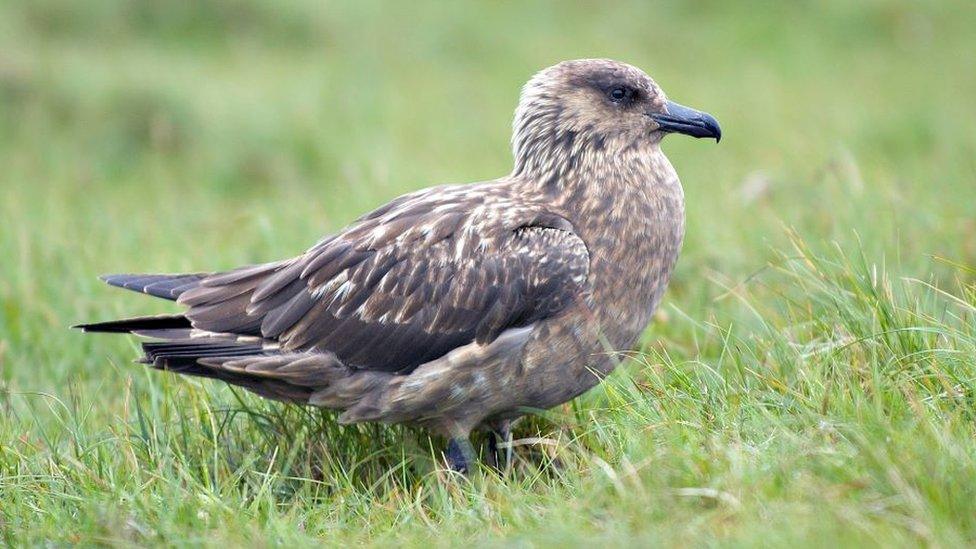
Great skuas in Shetland are said to have been badly hit
Some seabird species have returned to Scotland in significantly lower numbers in the wake of last year's avian flu outbreak, NatureScot has warned.
The nature agency said great skuas in Shetland appeared to have been hit especially hard.
At one site, Hermaness, it has been estimated up to 90% may have been lost.
There are also concerns about terns across Scotland, including at NatureScot's Isle of May and Noss National Nature Reserves.
Hundreds of dead birds were found in Shetland last year, including great skuas, know locally as bonxie.
Counts are ongoing, but NatureScot said initial observations from some of the main sites in Shetland suggested "significant breeding population declines" for great skuas.
It said Scotland supported 60% of the world breeding population of great skuas.
As a result, a temporary suspension of ringing and research activities has been put in place for great skua to minimise unnecessary disturbance or stress to the populations.
On Noss in Shetland, NatureScot said tern nesting was late but some eggs had now been laid.
However, on the Isle of May, the nature agency said that, as yet, there had been no nesting this year, while on Rum the terns had left without laying any eggs.
Targeted surveys of breeding seabird populations are ongoing in the hope of better understanding the extent of the impact.
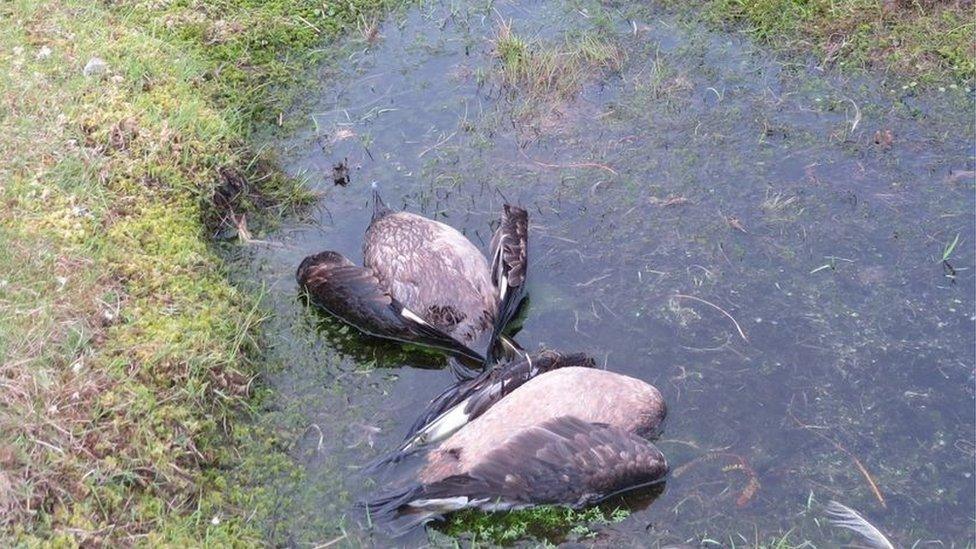
Great Skuas, known locally as bonxie, were affected in Shetland last year
Despite recent outbreaks of the virus in England, there is "cautious optimism" that colonies in Scotland have so far avoided the high number of deaths observed last summer.
Alastair MacGugan, a NatureScot wildlife manager, said: "It is too soon to draw firm conclusions about the impact of last year's terrible losses, but the low numbers of great skua and terns returning to our shores is certainly concerning and something we are keeping a very close watch on.
"The good news is that, in Scotland at least, we are not seeing the large numbers of dead birds around breeding sites that we did last year.
"This may mean that the remaining birds have gained some level of immunity to the virus. If so, then there is cause for optimism as populations may begin to slowly replace the losses that occurred last year.
"This is far from the end of the outbreak, however, and we are certainly not complacent."
Public health advice is that the risk to human health from the virus is very low.
- Published6 June 2022
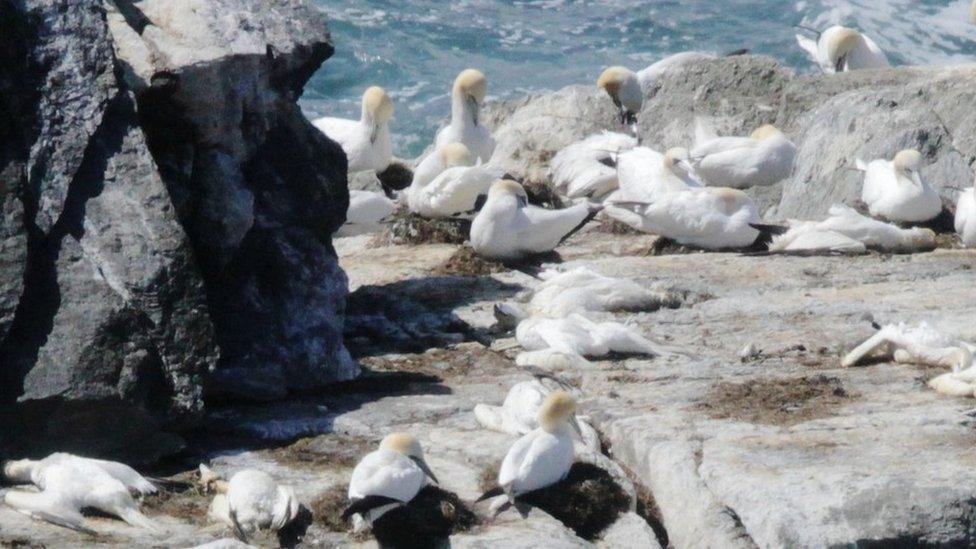
- Published1 June 2022
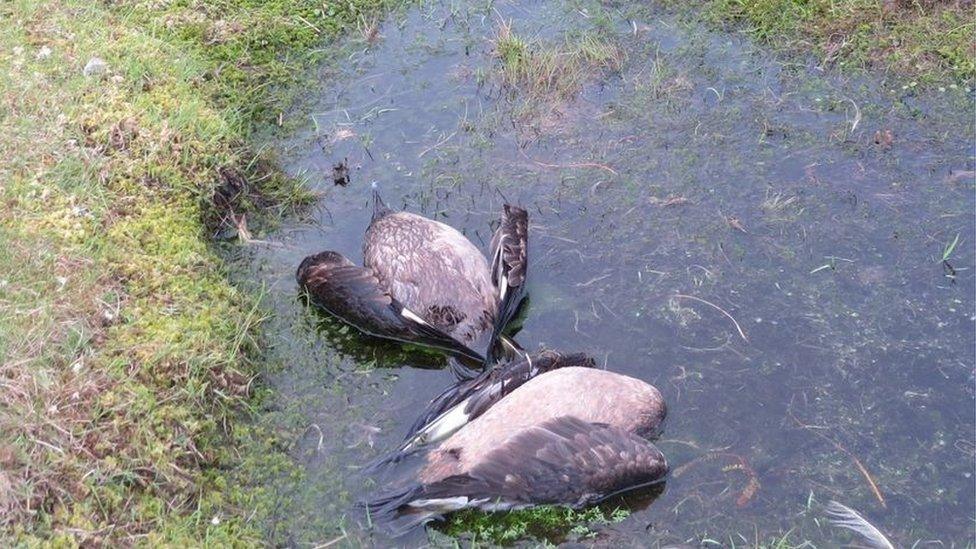
- Published13 May 2022
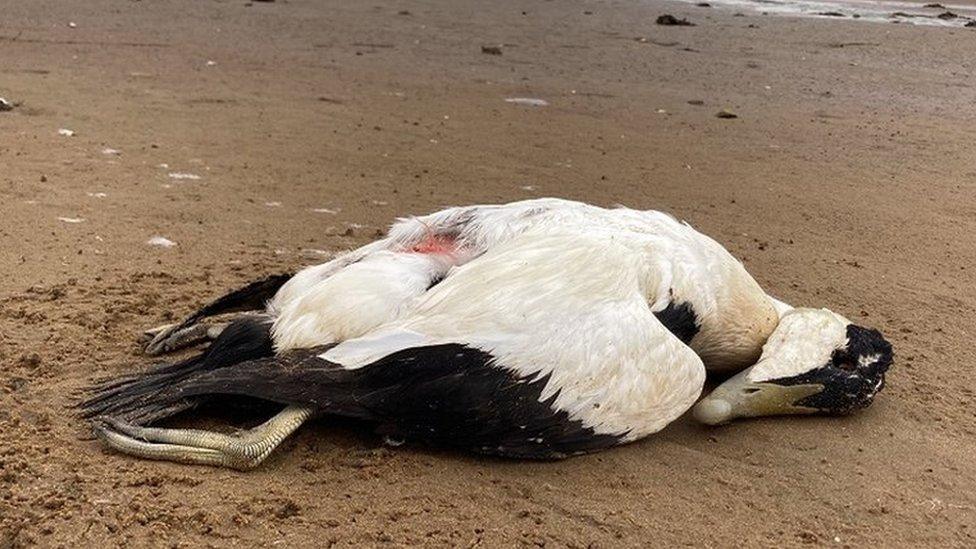
- Published29 March 2022
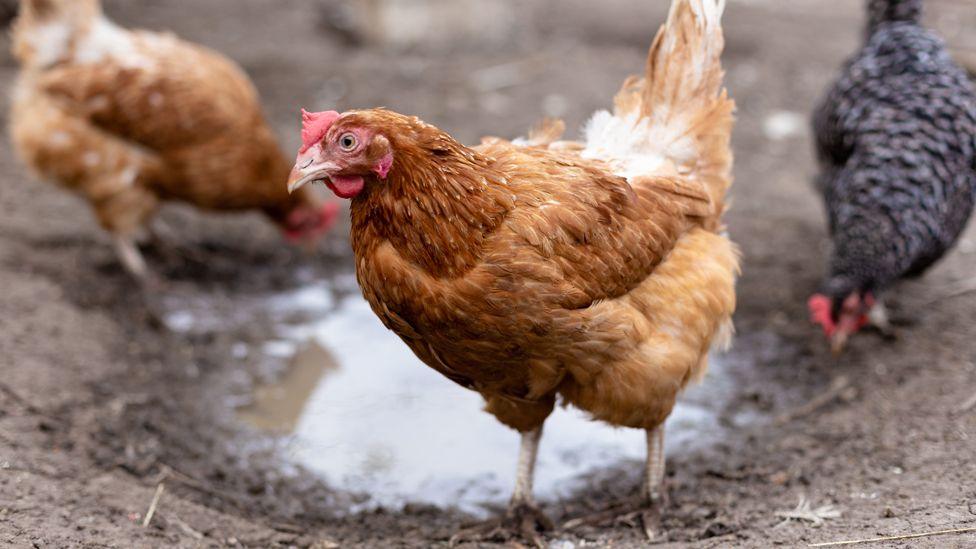
- Published20 March 2022
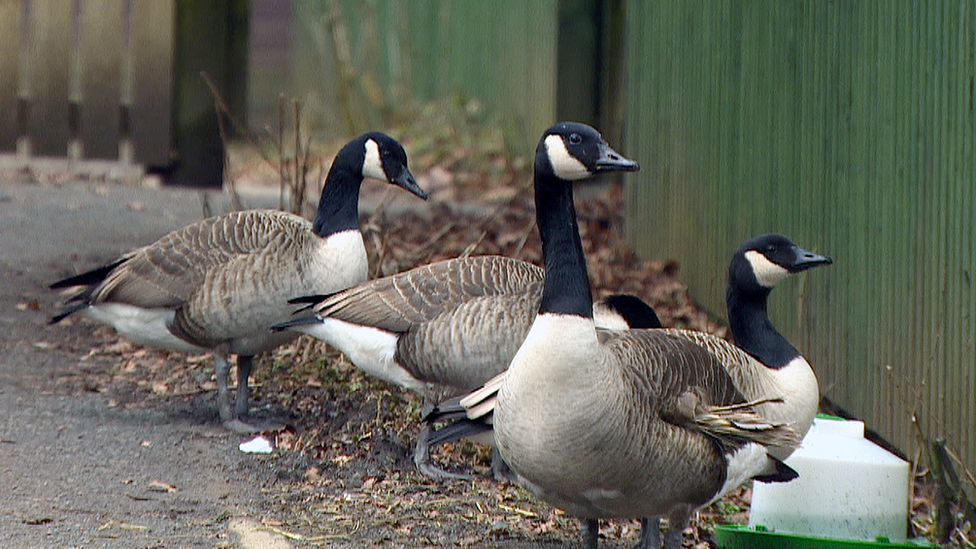
- Published11 March 2022
